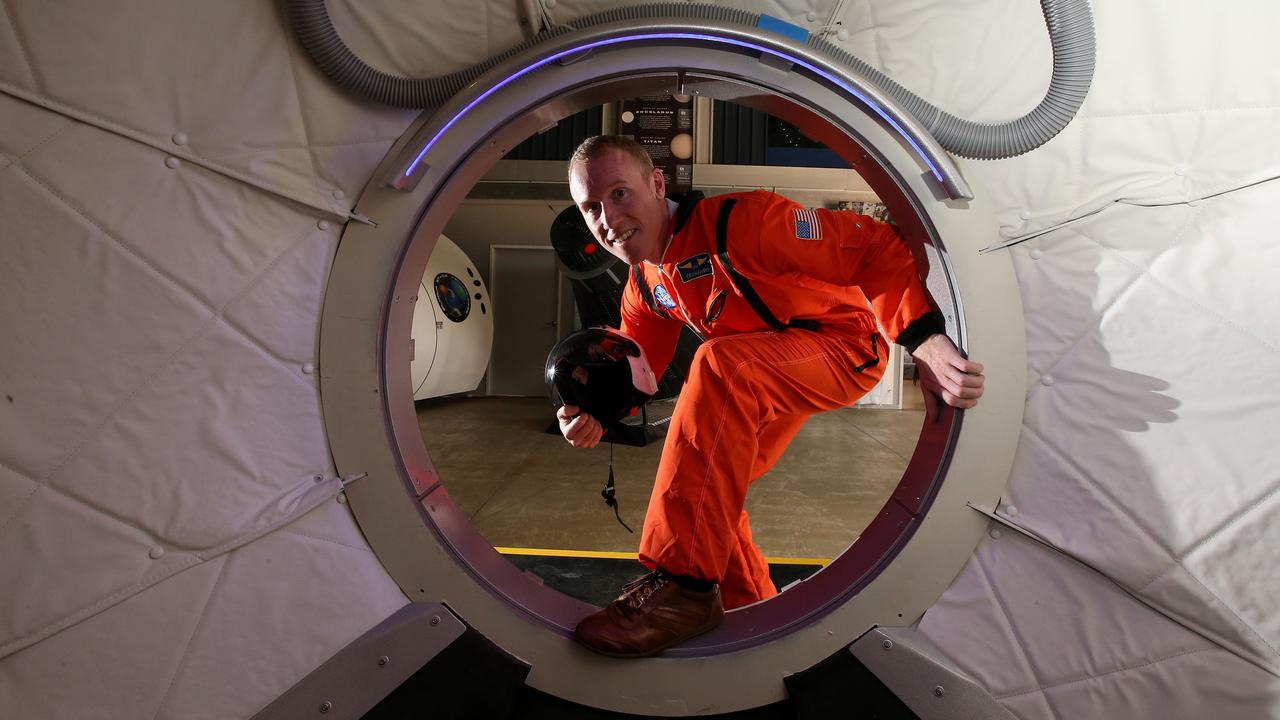Vegemite in space: Countdown on for first launch of Australian-made rocket

The Eris rocket will be carrying a jar of Vegemite on its tip. Pic via Getty Images
Aerospace company Gilmour Space Technologies has set a launch date of March 15 to test the first Australian-produced orbital rocket, in a step towards space sovereignty that will redefine the nation’s “status in the world”.
The Eris rocket will be launched from the start-up’s space station in Bowen in northern Queensland and will be carrying a jar of Vegemite on its tip, in a show of patriotism reflecting SpaceX founder Elon Musk’s decision to attach a wheel of cheese to one of his early vessels.
Chief executive Adam Gilmour said it had been deemed too risky to launch the rocket with a satellite attached because the first launch was highly likely to be unsuccessful, with a second launch slated for six months later.
“We’re looking at our success on how many seconds of flight time do we get?” Mr Gilmour told The Australia. “If we get 10 seconds, it’s good. If we get 30 seconds, it’s even better. The more flight time we get, the better.”

Mr Gilmour said the launch was a step towards addressing the shortage of available rockets to support the multibillion-dollar market for space access, critically needed by satellite companies and sectors including defence and technology.
He said there were only about six countries regularly launching rockets into space, placing Australia on “another playing field in terms of our status in the world, as a nation”.
“If we succeed, we will be able to supply Australia with Australian-owned, Australian-run capability,” he said.
“As the world moves into the future, more and more of society relies on space technology.
“It’s becoming more and more endemic to everyone’s way of life, and so it’s really important that as a nation, we have this access to space.”

Mr Gilmour said an ideal outcome for March 15 was for the rocket to complete the three stages as designed, where each layer ignites and then falls away in a sequence, with the third piece reaching orbit.
He said the launch depended on weather and could be delayed for days or weeks.
“The best-case outcomes – we get into an orbit with our third stage and our jar of Vegemite,” Mr Gilmour said.
“What that means is we’re going 27,500km/h. And we’re going to go to an altitude of 150km, which is not very high. We’ve deliberately chosen that altitude so that the third stage doesn’t stay up in space for very long and burns up back in the atmosphere in a number of days afterwards, or within probably 24 hours.
“But we’ll still be in orbit, we will still prove the vehicle, and that would still be like a massive, massive achievement.”
But Mr Gilmour was not encouraging of comparisons to Mr Musk and SpaceX, describing the tech titan and ally to US President Donald Trump as a “one in a century kind of guy”.
“I think he’d be very upset if I was compared to him,” he said.
“But we’re having a go. We’re entrepreneurial.”
This article first appeared in The Australian.
Related Topics
UNLOCK INSIGHTS
Discover the untold stories of emerging ASX stocks.
Daily news and expert analysis, it's free to subscribe.
By proceeding, you confirm you understand that we handle personal information in accordance with our Privacy Policy.








